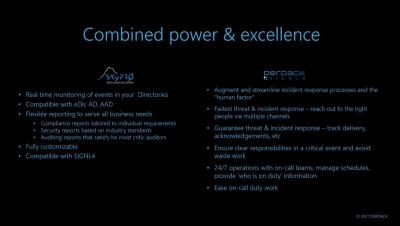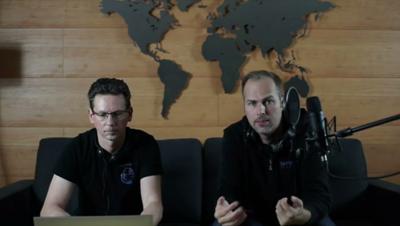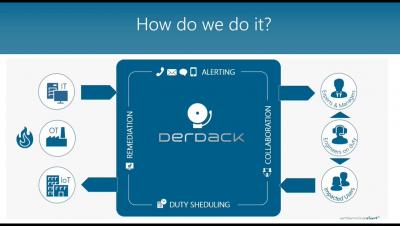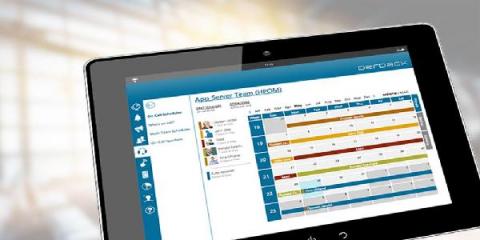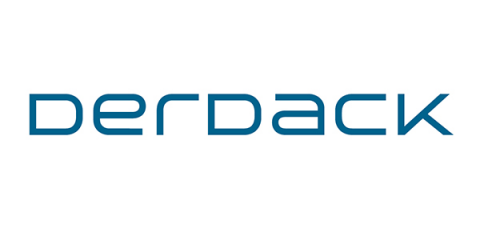Operations | Monitoring | ITSM | DevOps | Cloud
Derdack
Derdack Saves Christmas
What's new in Enterprise Alert 9.1 - Full Length Session
Enterprise Alert 9.1 Update brings Microsoft Teams and SIGNL4 connectivity
As announced at the User Group Meeting 2021, we are now releasing Enterprise Alert 9.1. This version brings a set of new features extending the capabilities in some crucial areas. Here is what’s new in a nutshell: As always you will find more details, release notes and downloadable installer files in the online user group. You can also watch the session from our UGM (no cookie embedding): Watch this video on YouTube
Reliable incident alerting for critical IT systems at German health insurance provider Debeka
“Thanks to Enterprise Alert and the acknowledgement function, we can track the alerting and response digitally and have the certainty that our employees always take care of incidents in our critical IT infrastructure in a timely manner. IT alerting with Derdack, which has to be documented according to BaFin KRITIS, is highly reliable.”, Markus Reusch, Product Owner Monitoring, Debeka
Enterprise Alert Remote Remediation and Escalation
When built-in alerting is not enough
Many ITOM or ITSM tools come with built-in features for alerting and notifications and are able to send at least an email or text notification upon incidents to operations teams. But is this enough reliability to respond to and handle major and critical incidents? Recently, we have been surprised to see more and more monitoring tools listed as alerting tools on review platforms like G2.
CheckMK and Enterprise Alert - a scripted heartbeat check
A few days ago I received an inquiry about a scripting problem from one of our longtime partners, to be exact our DCP Marc Handel from IT unlimited AG. In the exchange with Marc I realized that his idea to use the Enterprise Alert Scripting Host, the Windows Task Scheduler and CheckMK to realize a roundtrip monitoring could be interesting for the whole community. Especially for all our CheckMK customers.
Call Handling - Relieve the burden of your service desk and on-call staff
These days, I keep encountering inquiries from various customers on the topic of call handling. Due to the current transformation, triggered by the increased use of home offices, it is becoming more and more important to make on-call staff more accessible. Often the already overloaded service desk is used for this purpose. Of course, this leads to a) a deterioration in the quality of the service desk and b) delays between the receipt of the problem and the start of problem resolution.
Timely Delivery with Enterprise Alert
Murphy’s Law states that anything that can go wrong, will go wrong. The challenge for most businesses is putting the right method of communication in place for when the inevitable happens. The only way to handle this is to expect the worst and then prepare for it. A key factor in deciding for any alerting solution is can my team be notified properly when a major outage happens .


